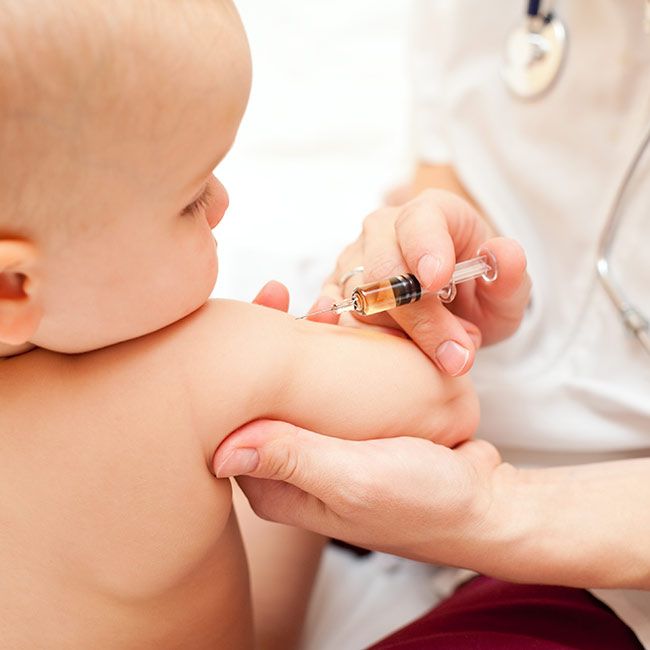Although it is uncommon, meningitis B can be incredibly serious, causing life-changing disabilities or death. The infection most commonly affects children under the age of one, and is rare in children over the age of four. So exactly what is meningitis B, and what symptoms should parents look out for? We've rounded up what you need to know...
What is meningitis B?
Meningitis B is a serious medical condition where the wrappings that surround the spinal cord and brain become inflamed. It is caused by a specific menigococcal bacteria and can become fatal if left untreated. It can also lead to menigococcal disease, when the patient becomes ill with both meningitis and septicaemia.
Babies under one receive three Meningitis B vaccinations
What are the symptoms of meningitis B?
The symptoms of meningitis B are the same as the symptoms for other strains of meningitis. Symptoms are initially flu-like and include fever, headache, vomiting and feeling unwell. They then progress to include:
- Limb or joint pain
- Cold hands and feet
- Pale or mottled skin
- Shortness of breath
- A rash all over the body
- Stiff neck
- Aversion to bright lights
- Excessive sleepiness
- Confusion
- Seizures
What are the symptoms of meningitis B in babies?
Meningitis B is most likely to affect babies and young children, with symptoms including:
- A bulging soft spot on the head
- Irritability
- A stiff body
- A floppy body
- Refusal to feed
- A high-pitched cry or unusual grunting sounds
If you spot any of these symptoms in your baby you should take them straight to the hospital.
Discover the meningitis symptoms you need to know
How is meningitis B treated?
Meningitis B is treated with antibiotics in hospital. The exact nature of the treatment will depend on how serious the illness is, but the patient will often require IV fluids, steroids and oxygen.
RELATED: See the latest health stories here
What is the meningitis B vaccine?
In 2015 the UK was the first country in the world to introduce the MenB vaccine into the routine NHS childhood immunisation programme. Babies are given three injections before they are one year old, which are expected to protect children until they are about four years old. There is currently no meningitis B vaccine available on the NHS for older children and adults, however the illness is rare in children over the age of four.








